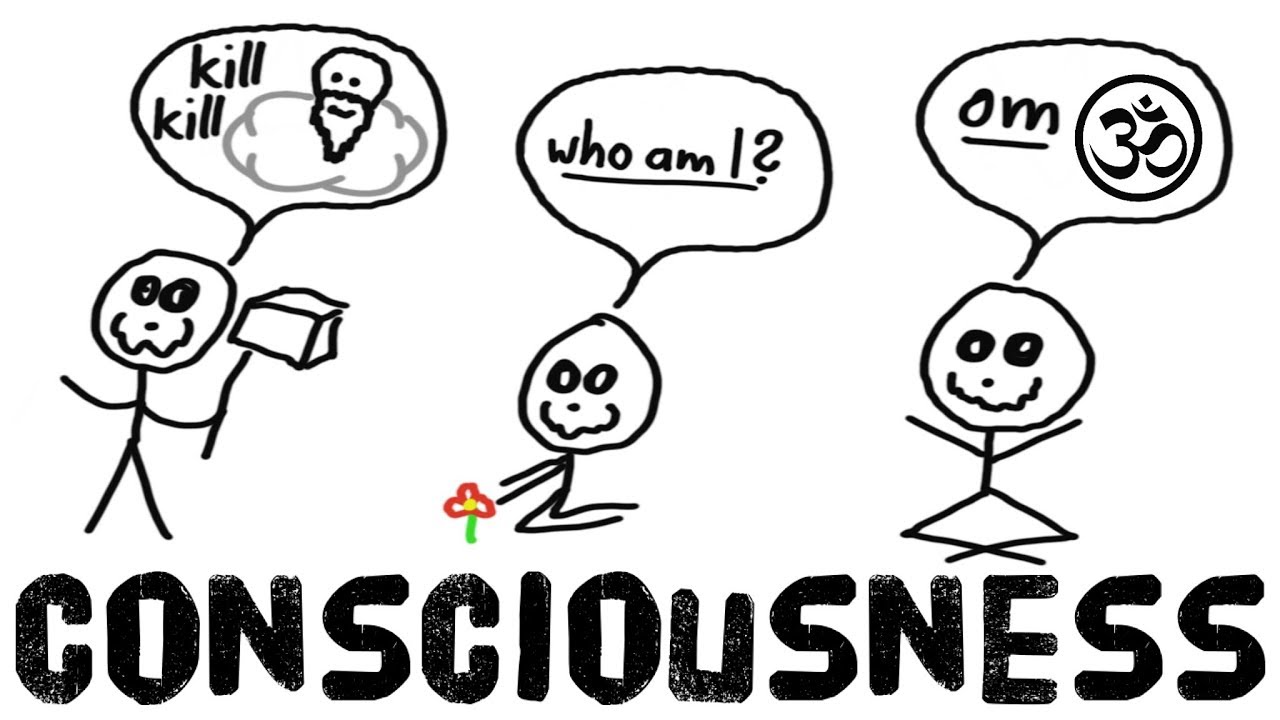geistreiches
bicameralism psychology | self transcendance | ego transcendacne | left brain interpreter | different states of consciousness | split brain experiment | the bicameral mind theory explained | past present and future of consciousness | the origin of religion explained | god explained | why we think there is a god | bicameralism summary | the bicameral mind summary | origin of consciousness in the breakdown of the bicameral mind summary | origin of consciousness explained | Summary
hey guys this video will be about the bicameral mind, past present and probable future of consciousness, it will be the first video of a series that taps into thought experiments and iteresting ideas I found on the web and that are connected to eachother.. don’t forget to subscribe to not missout on it
so lets start
Bicameralism is a hypothesis in psychology that argues that the human mind once assumed a state in which cognitive functions were divided between one part of the brain which appears to be “speaking” (right brain), and a second part (the left brain) which listens and obeys—a bicameral mind. The term was coined by Julian Jaynes, who presented the idea in his 1976 book The Origin of Consciousness in the Breakdown of the Bicameral Mind.
According to Jaynes, ancient people in the bicameral state of mind would have experienced the world in a manner that has some similarities to that of a schizophrenic. Rather than making conscious evaluations in novel or unexpected situations, the person would hallucinate a voice or “god” giving admonitory advice or commands and obey without question: one would not be at all conscious of one’s own thought processes per se.
When bicamerality as a method of social control was no longer adaptive in complex civilizations, this mental model was replaced by the conscious mode of thought which, Jaynes argued, is grounded in the acquisition of metaphorical language learned by exposure to narrative practice.
Jaynes asserted that, until roughly 3000 years ago, humans did not generally have the self-awareness characteristic of consciousness as most people experience it today. Rather, the bicameral individual was guided by mental commands believed to be issued by external “gods”…
Jaynes theorized that a shift from bicameralism marked the beginning of introspection and consciousness as we know it today. The Bronze age collapse of the 2nd millennium BCE led to mass migrations and created a rash of unexpected situations and stresses which required ancient minds to become more flexible and creative.
Self-awareness, or consciousness, was the culturally evolved solution to this problem. This necessity of communicating commonly observed phenomena among individuals who shared no common language or cultural upbringing encouraged those communities to become self-aware to survive in a new environment. Thus consciousness, like bicamerality, emerged as a neurological adaptation to social complexity in a changing world.
Jaynes further argues that divination, prayer, and oracles arose during this breakdown period, in an attempt to summon instructions from the “gods” whose voices could no longer be heard.
based on his ideas I can imagine that there will be 3. points of evolution in regards of consciousness and how we experience ourselfes
the first low conscious shiziphrenic bicermal state of mind, which is basically you just executing commands, then the conscious state of mind based on metaphorical language, basically you processing information and becoming self aware however still tied to the limits of language
and third a higher state of consciousness experienced nowadays by meditation self transcendance or enlightenment where feelings imagination and unity will play a bigger role..
main drivers of the 3 states is the primitive connection of humans in the early state marked by sharing knowledge only through speech, the highe connection of humans in the second state because of bigger cities and the invetion of writing.. and the third state driven by an all connected world through the internet and therefore creating an universal mind and consciousness
Special thanks to Louis Dyer for letting me use his art at 2:02 in the video, check out his channel and website!
https://www.youtube.com/user/LucidLouis
http://louisdyer.com
I’m G from Austria – Gaming Videos Streams [ENG] – Like and Subscribe!
Youtube: geistreiches
Twitter: geistreiches
TWITTER: http://twitter.com/geistreiches
PATREON: https://www.patreon.com/geistreiches
NEWS & REVIEWS: https://www.youtube.com/playlist?list=PLC7XTkcOo-UmuxweWGxb9Ovz4gTuaoeGk
BEST OF: https://www.youtube.com/playlist?list=PLC7XTkcOo-UlP2XygHaZuANbCqZEUJ64M
CINEMATICS: https://www.youtube.com/playlist?list=PLC7XTkcOo-UnxqGiL0H5pwsqeGzH88x1J
SOMETHING WITTY: https://www.youtube.com/playlist?list=PLC7XTkcOo-Unj5PdnEIqurUQKPO3csg0A
HOW TO | TIPS | TRICKS | GUIDES: https://www.youtube.com/playlist?list=PLC7XTkcOo-Uk5gtKrWxyQWx7or0WQ-phA
Source




Sanatan is a way of life … it's never a religion… read vedanta
He's a videogame reviewer!😅
explains how they came up with religion
The presentation was interesting until the explanation of the third state of consciousness at the end. This requires further clarification or justification – how universal consciousness differs from stage one consciousness for example… (not sure it does)
Great presentation. The theory is quite absurd, though. But interesting.
I find this hypothesis incredibly interesting but I think they are some flaws with it.
One flaw is the fact that many human populations have been isolated for significantly longer than 3000 years, and yet still all think in the modern sense, and that the Epic of Gilgamesh, the oldest known work of literature, describes Gilgamesh as performing introspection, something that would be impossible under Jaynes' hypothesis. This first flaw naturally leads into the second flaw which is Jaynes's proposal does not explain how bicameralism could have been lost at the same time across the entire human species (simultaneous, world-wide transition). The indigenous Australian culture was completely separated from the rest of the world from 4000 BCE to 1600 CE, yet appears today to be both historically unchanged and self-conscious. The third and final flaw with this hypothesis is pre-transition divination. Divination is also considerably older than that date and the early writings he claims show bicamerality: The oldest recorded Chinese Writing was on oracle bones, meaning that divination arose at the same time or even earlier than writing in Chinese society.
So, are these problems and criticisms too great which once-and-for-all shows Jaynes’s bicameral mind hypothesis model to be false? If not, how would a defender of Jayne’s respond to or account for these criticisms? If these criticisms can be rationally accounted for then what is the evidence that actually strongly indicates this hypothesis is true? Thanks.
Excellent job within the time frame allotted for the presentation.
This is my very nascent theory of narcissists. They’re throwbacks to a more primitive mentality.
You sound like Gatis Kandis.
Compliment. I like it
meus parabens pelo seu sotaque, camarada
This is one of the best presentations that I have yet seen on this difficult topic AND mercifully short, too! I really enjoyed your speculation about a third stage of Consciousness because it reminds me so much of Teilhard's "noosphere".
I love this video you created and it is packed with great information and imagery. You have great knowledge to share – thank you. If you would please speak slower it would greatly help digestion of your message.
your accent makes you sound like a mad scientist.
The work you put into this is great! It's only three and a half minutes long, but you really covered a good overview of the topic while making it easy to understand.
Is it possible they considered left brained stuff to be more world / inherent /external, like breathing air, freeing up more space for the right brain creative stuff?
Great video 👌 .. And one question.. Which software was use to make videos
Thank you for your entire frequent experience, encouragement in addition to understanding to sustain my voyage to turning out to be more consciously alert and in addition spiritually connected.